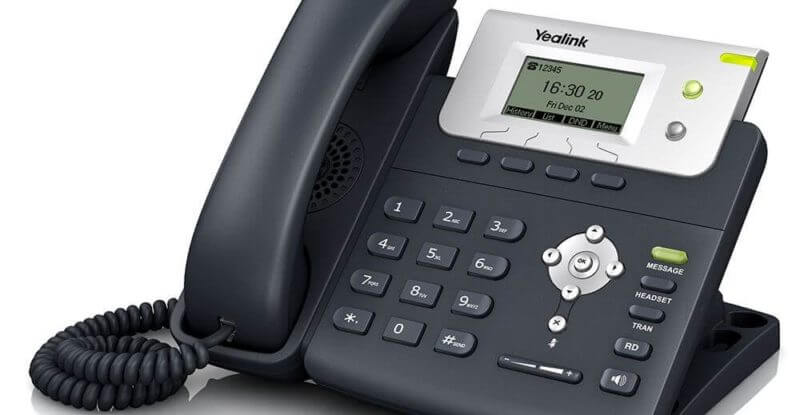An Internet Protocol (IP) or Voice Internet Protocol (VoIP) utilizes Voice over IP know-how for initiating and receiving telephone calls over an IP network (e.g. Internet), rather than the standard telephone system. The phones change voice vibrations to compressed digital signals that adapt to a standard telephone signal and let individuals make phone calls through their personal computers.
IP / VoIP phones offer a variety of benefits over the standard phone, including cost savings, as funds usually devoted to phones, can now be dedicated elsewhere; flexibility, as users can multi-task and move about freely; and, simplicity, as they are so easy to install and configure. As well, IP / VoIP phones are more efficient, provide better call quality, and offer more features.

Before, however, you toss away all your landlines and cell phones and replace them with IP / VoIP phones, there are some considerations to make beforehand and questions to ask yourself and of your business:
What Exactly Are Your Needs?
Though IP / VoIP Phones offer plenty of advantages and offer a business many solutions, you need to figure out for what you’ll be using the phones. Will you be want to have video conferencing, video recording, and/or video display features? Will you want to travel about or even travel out of state or even the country? Do you want display features, such as touch-screen ability? Why so many questions, well, they all pertain to budget.
What is Your Budget?
Budget is, of course, always an important concern for every individual and every business. Some individuals and businesses prefer high definition sound, but is the benefit worth the cost. To some, the answer is yes. You also need to consider how many will be using the IP/ VoIP / phones and for how long. All day? Or, just for a standard workday? As for all things, it’s not a one-size-fits all solution or strategy. Executives may only require video recording and conference options, while associates may want to multi-task and move around and have access to voice mails, emails, colanders, etc. It could also be the other way around, too. And, then there’s support staff. They may need access to everything.
Ethernet Speed
IP / VoIP phones obtaininformation via a network switch using Ethernet Cabling. Standard Ethernet delivers roughly 10/100mbps. Such is adequate for simplephones, but bigger, mixed media phones need more durable bandwidth to accommodate more powerfulcommunication.
Protocol
Protocol is important, whether you’re using the IP / VoIP for personal or business use. Different solutions are available, including Signaling Connection Control Par (SCCP) and Session Initiation Protocol SIP. Right now, SIP is a more a more accommodating, flexible protocol that modern companies find more appealing.
Once again, you’ll need to carefully consider your needs before immediately deciding to ditch all your phones and invest totally in IP / VoIP Phones. They are, however, a wise investment that you’ll never regret. It’s just better to know your needs and not overspend or get more than what you require. At the same time, you don’t want to miss out on beneficial, time and work saving features.





